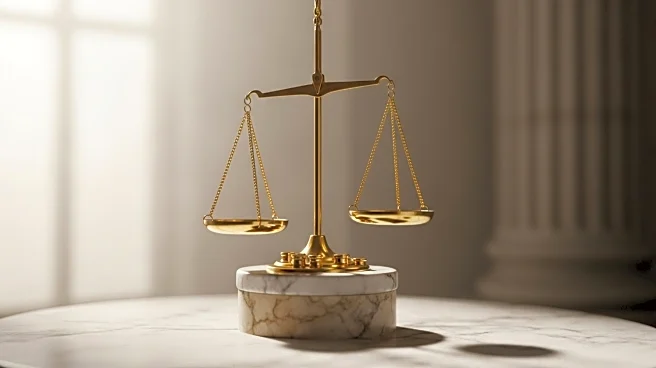What's Happening?
Alex Jones, the founder of Infowars, has petitioned the US Supreme Court to halt a $1.4 billion defamation judgment against him. The ruling stems from Jones' claims that the 2012 Sandy Hook Elementary School shooting was a hoax. Jones argues that the judgment, which necessitates the sale of his media company, Infowars, to The Onion, will cause irreparable harm to him and his audience. He contends that the payout and the potential shuttering of his platform could have a chilling effect on media figures, impacting free speech protections under the First Amendment.
Why It's Important?
Jones' appeal raises significant questions about the balance between free speech and accountability for misinformation. The case could set a precedent for how defamation judgments are handled, particularly for media figures who disseminate controversial or false information. The potential impact on journalists and media companies highlights the tension between protecting free speech and addressing harmful narratives. The outcome of the appeal could influence future legal standards for defamation and media accountability.
What's Next?
The Supreme Court is expected to consider Jones' application in private, with a decision on whether to grant a stay pending appeal. The case may prompt further legal debates on the scope of First Amendment protections for media figures. Stakeholders, including media companies and free speech advocates, will likely monitor the proceedings closely, as the decision could have far-reaching implications for media practices and defamation law.
Beyond the Headlines
The case underscores the ethical and legal challenges of balancing free speech with the responsibility to prevent harm from misinformation. It highlights the potential consequences for media figures who engage in controversial discourse and the broader implications for public trust in media. The appeal may prompt discussions on the role of media in shaping public narratives and the importance of accountability in maintaining democratic principles.









